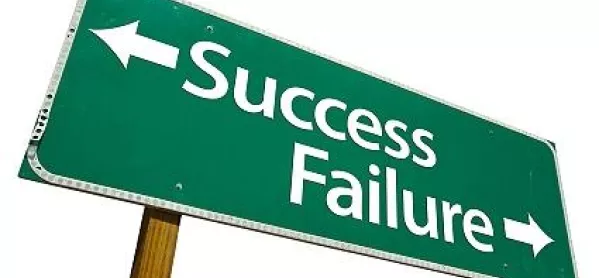EBac measure left grammars wanting

Grammar school performance on the Government’s new measure of “academic rigour” varies widely, a TES analysis has revealed.
Less than a fifth of pupils in some of England’s remaining academically selective secondaries qualified for the English Baccalaureate on their GCSE 2010 results.
The new benchmark requires at least grade C GCSEs or IGCSEs in English, two sciences, maths, history or geography and a language.
Curriculum expert Mick Waters has suggested this “academically rigorous” approach could eventually lead to a return to academic selection. But many of England’s 164 grammars perform poorly on the measure, with less than half of pupils achieving an EBac in 29 of the selective schools.
The variation is in marked contrast to grammar schools’ uniformly high performance on the five A*-C GCSEs including English and maths measure, with almost all scoring 95 per cent plus.
Collectively their score on the EBac, which the Government applied retrospectively to the latest GCSE results, is well above the national average. But just 15 per cent of pupils achieved the EBac in one grammar and only 17 per cent of pupils in two others. The trio were outperformed by nearly 800 comprehensives on the measure.
Professor David Jesson, from York University, who researches variation in school performance, said: “There is a wide variation between grammar schools (on the EBac) and in a way that is surprising because grammar schools are thought to be more traditional in the way they organise their curricula.”
He said a “proper value-added framework” needed to be applied to their results because contextual value added had proved to be disastrous.
Reasons given for low grammar school EBac performance include pupils being allowed to opt out of languages or humanities and some not attempting enough separate sciences - because although two passes will suffice, all three have to be entered to qualify for an EBac.
Simon Everson, chair of the Grammar Schools Heads Association, said: “Where you introduce a measure without having given schools an opportunity to respond to the measure you will inevitably see in the early stages large variations that could be ironed out later.”
Mary Bousted, Association of Teachers and Lecturers general secretary, said: “This shows the absurdity of the English Baccalaureate. Obviously many grammar schools don’t even consider it to be suitable for their pupils, even though it is supposed to measure academic rigour.”
At Chislehurst and Sidcup Grammar, only 15 per cent of pupils achieved an EBac. A spokeswoman for the school in Bexley, south London, said: “It was not compulsory, nor is it now, for students to study a modern language andor a humanities subject”. Those without an EBac had still have achieved excellent GCSE qualifications, she said.
Julia Bell, head of Fort Pitt Grammar, Chatham, Kent where 17 per cent of pupils got an EBac, said the score was low because not all pupils took history, geography or a language although all were available.
“Our pupils are very bright and many of them have a career in mind,” she said. “So dictating to them that they will take X and Y seems a bit odd. I don’t care about league tables for the English Baccalaureate. I care about the achievement of the girls.”
St Joseph William’s Mathematical School in Rochester said its EBac score of 17 per cent was due to the fact that some pupils only attempted two separate science GCSEs, automatically disqualifying them.
Keep reading for just £1 per month
You've reached your limit of free articles this month. Subscribe for £1 per month for three months and get:
- Unlimited access to all Tes magazine content
- Exclusive subscriber-only stories
- Award-winning email newsletters



